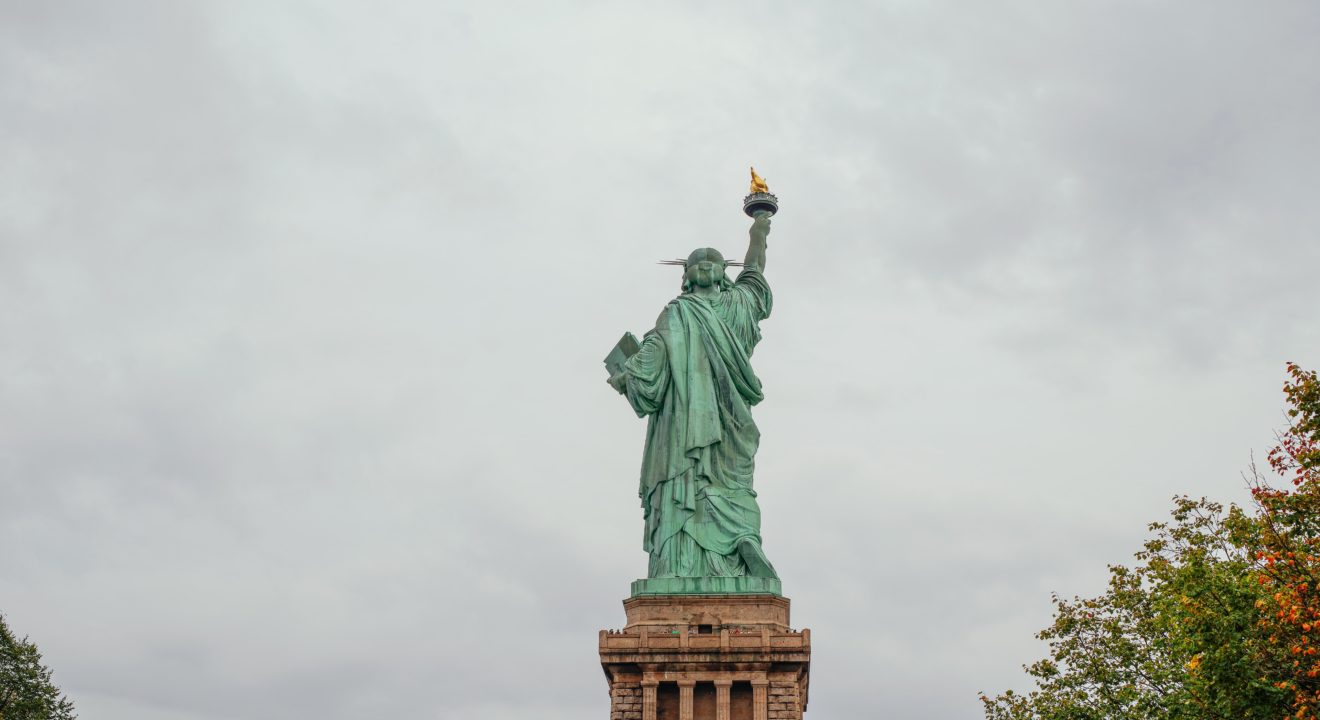Politics August 1, 2019
President Trump’s slogan has fostered a hateful, fear-based rhetoric and first-generation citizens are going to be the ones most hurt by it.


It all began at a “Make America Great Again” rally. A crowd of President Donald Trump’s supporters gathered on July 17—plenty of whom donned the red MAGA hats with pride. During the rally, Trump made a bold statement regarding his 2016 campaign slogan: “Make America Great Again.”
“I have the greatest phrase probably in the history of politics,” Trump said. “Our new phrase for our 2020 campaign is ‘Keep America Great.’”
Trump’s new campaign slogan builds on the negative animosity of his 2016 campaign. It further creates a frightening dialogue in politics for immigrants and their families.
It’s difficult to believe that phrases like “Make America Great Again” or “Keep America Great” can exist today without satirical connotations or an ironic smile. Yet, with the day-to-day antics that occur in the Capitol, Trump’s supporters have become empowered, resonating with a sickening slogan that makes anyone with close ties to another country feel fearful.
Trump’s campaign slogans aren’t a welcoming chant, but rather words that incite worry for immigrants and their children. Immigrants whose homes lie in the United States but hearts lie in their parents’ home countries are losing their voice in the U.S.
On July 14, Trump posted a racist tweet directed at Democratic Representatives Alexandria Ocasio-Cortez, Rashida Tlaib, Ayanna Pressley and Ilhan Omar. He stated that the representatives, who happen to be women of color, should “go back and help fix the totally broken and crime infested places from which they came.”
Trump’s tweet belittles these women and paints a negative image of their home countries. He is fostering a dangerous and narrow-minded view of immigrants.
Ocasio-Cortez is the child of a Puerto Rican mother, Tlaib is the child of Palestinian parents and Omar was born in Somalia. While all are American citizens, they come from diverse backgrounds. Trump’s callous statement fails to recognize that these four women represent a lot of underrepresented people in the United States today.
To minority women like myself, these four women represent a sense of resilience and determination. To first or second-generation immigrants, they represent something even greater: a clear vision of the American dream. These women, who have embraced their family’s history, embody progress and success for immigrant families who don’t have rich history in the United States.
Since the tweet, Washington D.C. has dealt with a chaotic divide routed in party politics instead of sensibility. Surrounded by politics in support of idealizing history, the most devoted of Trump’s supporters have found that their iconic slogan favors moments in history that are embedded with anti-immigrant rhetoric.
The United States has become a country where citizenship is brought into question solely because of skin color. It has become a place where a family’s home country can be constantly berated and attacked because of unwavering preconceptions and opinions.
Trump’s recent actions have reminded first-generation citizens that they can’t feel like they are at ease. Though immigrants have made great strides to relocate to a new country, hateful rhetoric stating that their countries are “crime-infested” and “broken” makes it difficult for them to feel welcome.
Instead, immigrants hear negative stereotypes that simplify their country’s multifaceted history and culture into a harmful one-sided representation. Immigrants overcome difficult circumstances and bring a rich and diverse culture to the United States. However, many seem to dismiss this.
“Make America Great Again” carries with it an aura of ambiguity. This has made it a successful slogan for Trump supporters. It doesn’t clearly define at what point in history America needs to return to. It doesn’t truly specify what needs to be “great”. For those who have come to cherish this phrase, the power may be simple enough: it focuses on nostalgia.
Since its founding, America’s opulence and opportunity have become a defining characteristic of the country. The country provided a home for European immigrants to escape religious persecution in the 17th century. Economic growth and prosperity during the 19th and 20th centuries further fostered this attitude. “Make America Great Again” embraces this pride and patriotism regarding America’s growth.
However, the phrase “Make America Great Again” doesn’t hold the same connotations for everyone. People who embrace Trump’s 2016 campaign slogan fail to recognize that America’s history carries a darker duality for those who haven’t shared the same privileges.
Immigrants, people of color and women haven’t held the same opportunity and opulence. Marked by racism, discrimination and anti-immigrant sentiment, these groups weren’t given many opportunities. These people weren’t given the same voting privileges or avenues for success and, as a result, have been left behind.
The president’s statements cannot be passively listened to and then immediately forgotten. He has carefully crafted this narrative about excellence that embraces anti-immigrant sentiments and negativity. We need to recognize what this means for the country as a whole, not just us as individuals.
As our country stands, our president’s words do not welcome immigrants with open arms. Instead, the Statue of Liberty has turned her back on those who don’t embrace a purely “American” identity. America won’t embrace immigrants until they bleed and bruise red, white and blue.
Following Trump’s 2020 campaign announcement, anti-immigrant rhetoric will only to continue to manifest itself in the mainstream media. However, not all citizens embrace these sentiments.
To anyone who has felt like they can’t embrace their identity, or to anyone who doesn’t feel like they belong in this country because of the politics: Know that there are people in this world who care about you. Your immigration history doesn’t determine your circumstance in this country, and you don’t have to feel afraid.